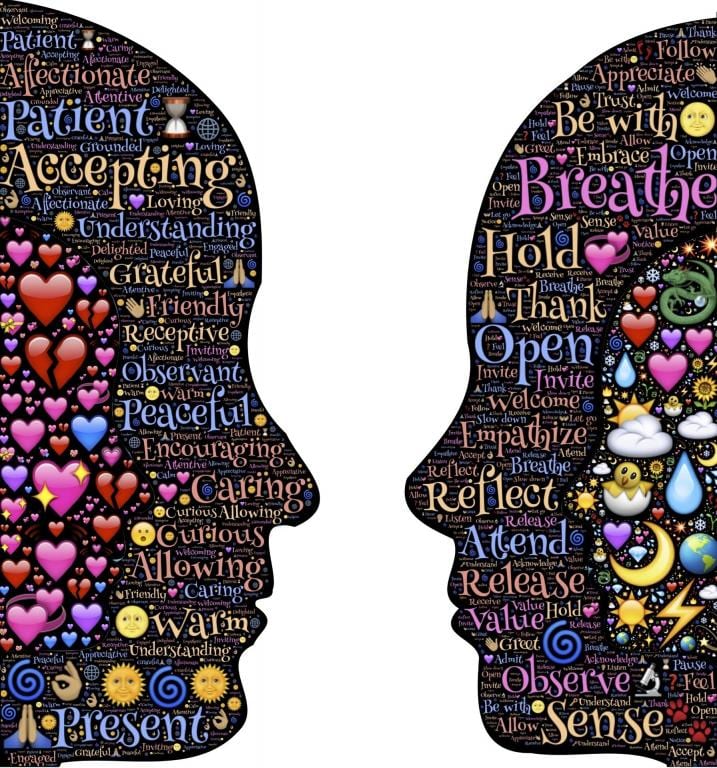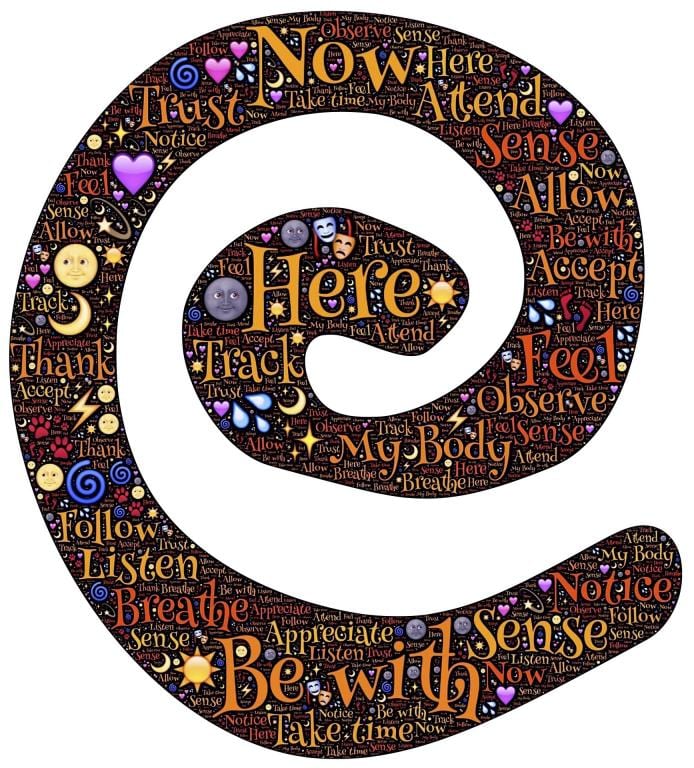When thinking about balance, it probably brings up mental images of balanced weight scales, or a line perfectly balanced over a fulcrum point, static and perfect. Or, maybe it brings to mind images of a tightrope walker from a circus, able to maintain balance and even do acrobatic feats while atop a rope. You might think of a gymnast, doing feats upon a balance beam. Perhaps you picture an anime martial artist, doing kata while standing upon a wooden post. Maybe you imagine something else altogether.
Those are all examples of balance, but they all exist under constrained circumstances. The scales or the line and fulcrum only stay balanced so long as the weights on either end remain undisturbed. The tightrope walker and gymnast both work along a straight path with which they are intimately familiar. The martial artist is practicing in a predictable environment.
But life is so much more complicated and unpredictable than that, especially in interesting times like these.

When I think about metaphors for balancing all the various needs, desires, expectations, and obligations of life, I think about movement in all directions. I think about dancing. I think about parkour. I think about trying to keep on your feet when moving around on a disk which has a fulcrum at the center. I think about trying to practice kata while standing on a large rubber ball, like the type used for Pilates.
I think about the kinds of balancing acts which are incredibly difficult, and likely to dump you on your ass even if you are at your most focused and skilled. I think about the kinds of acts which a few incredibly skilled and practiced individuals can make look easy, like watching a cirque performance where acrobats flawlessly perform feats which seem impossible to most people. But the only reason even they can achieve that kind of flawless execution is because the act is fully choreographed and meticulously practiced. They don’t get it right the first time either, and life doesn’t give dress rehearsals.
Life is a lot like that, especially during interesting times. A few individuals will make it look easy, and the rest of us fumble around and do our best to stay on our feet while dancing and juggling all the demands and desires of life on a constantly shifting surface. Whether we handle the inevitable setbacks with grace and dignity, or by screaming at the world, or somewhere in between, the important part is to get back up and keep seeking that impossible target of perfect balance, for when we get close, that is when we are best able to find peace, prosperity, and meaning in our lives. That is when we are best prepared to be able to weather the next upset to our balance.
COVID-19 has dealt the entire world an unbalancing upset. Even in cases where this pandemic doesn’t strike to the very hearts of our daily lives, we are still seeing dramatic effects on our lives and the lives of those we care about. For a staggering number of people, all the normalcies of life are completely pulled out from under their feet, leaving them struggling to find their bearings and get back on their feet, let alone seek out a completely new balance in their lives.
Exactly what “balance” means is different for every person, for no two of us have exactly the same circumstances, pressures, obligations, desires, aversions, and social circles. My hope here is to help give you some tools to reflect on your life, that you can find your own way to a more balanced and fulfilling existence, no matter the extremes under which you find yourself.

Breathe – Panic Helps Nothing
There is a lot to worry about, between fears of death, financial insecurity, political SNAFUs, lack of normal socializing, amplified mental issues, upheaval of daily routines, and so on. It’s perfectly natural and normal in situations this difficult to be anxious, bordering on panic, or in full on panic mode. When things are this bad, we, as humans, naturally go into fight or flight mode, but there is nowhere to run to, and the fighting we can do is not the kind of fighting which satisfies the fight urge.
Staying in a state of high anxiety or panic in this prolonged crisis can do nothing to benefit you, and will probably make things worse. No matter how difficult it seems, in order to find some semblance of balance and peace in your life, you must make efforts to calm the anxiety. By doing that, you will be better able to deal with the situation as it is.
Not everyone finds sitting in lengthy quiet meditation relaxing or helpful, but everyone can benefit from stopping for just a few breaths to center and be in the moment.
Breathe slowly in. Slowly out. Slowly in. Slowly out.
If you are so inclined, count breaths to your favorite lucky number, or some other number that makes you happy or has meaning for you. Even just 7, 9, or 13 breaths are enough.
Don’t worry about clearing your mind. Just let the thoughts come, and let them go, especially those in which you are critical of yourself and your thoughts and emotions.
Let the thoughts come and be as they are.
Let the thoughts drift on away as naturally as they arrived.
Slowly in. Slowly out.
Slowly in. Slowly out.
You can do this.
It may not be easy, but you can do this.
Practice Compassion
I’m not talking about giving profiteering a-holes a pass, or anyone else who is selfishly willing to damage the welfare of others. I’m talking about giving yourself, those you live with, and those you encounter a break when friction occurs. Everyone is stressed. Their lives are upside down, we have no idea when it will end, and most people don’t know how they will manage. Most people are justifiably scared for their lives and the lives of those they care about, perhaps even terrified, and it is going to get worse before it gets better.
The vast majority of circumstances will not be helped by adding more anger, anxiety, and rudeness on top of anger, anxiety, and rudeness. In times of extreme stress, responding to friction in kind is like throwing gasoline on a bonfire and expecting it to be extinguished.
This goes doubly so when you get frustrated with yourself, and those with whom you are living in quarantine, be they friends, family, roommates, or some other relation entirely. Times of extreme stress bring out both the best and the worst in people. Take at least a moment to consider before taking the bad personally, or lashing back with the same energy. Make the conscious decision to bring out the best in yourself, and give kindness and compassion instead. It can’t make things worse, and it might just douse the fire for both you and the other person.

If you can’t grab hold of compassion in the moment, acknowledge that fact, and give yourself and others what space you can to cool off enough so you can act and communicate with compassion and honesty.
Honest, Open Communication
The strongest foundation for any relationship is honest and open communication, but that can be a difficult thing for many people. If this is hard for you, I highly recommend finding ways to open up to yourself and those you find yourself in quarantine with.
When you are in close quarters with other people, the little things that were previously ignorable can become big issues. They can grow into sources of resentment if the discomfort isn’t communicated, because there is no opportunity to get away and allow your irritation to subside. However, always practice compassion when you talk honestly with others. Explain exactly what is bothering you, and why, and ask if they have any ideas about how to reduce the problem. If you aggressively lay into them about what bothers you, it can become confrontation, and is likely to make things worse rather than better.
For example, instead of saying, “Why don’t you ever put your dishes in the kitchen?” you can say, “Would you please pick up your dirty dishes? I feel like I am always having to pick up after you, and I am starting to resent it. Is there anything I can do to help you remember, so I don’t end up nagging you?”
In this example, it is entirely possible that the other person just didn’t think it was a big deal, and was planning to pick up their own dishes at a more leisurely pace. It might take a little time to form a new habit, but it’s not a big compromise to pick up dishes faster.
It is also entirely possible that the other person is struggling with anxiety and depression, and that is directly affecting their ability to do tasks like picking up after themself. By opening up the conversation, and practicing compassion and compromise, you might find that you are more emotionally capable of picking up all the dishes. Once you understand why the dishes aren’t being picked up, picking up the dishes for the other person becomes an act of aid to someone who is struggling, rather than the silent resentment of “why aren’t they doing their part?”
The couples’ psychology wording of, “This made me feel like…” is awful and awkward, but if you aren’t comfortable with open and honest communication, it’s not a bad place to start. It works because it acknowledges that you are expressing your feelings and perceptions, which probably differ from the feelings and perceptions of the other person(s) involved. Your feelings, and their feelings, are always valid, but that’s never the whole story. With open and honest communication, you can get to the root of what is happening and why, for all parties involved, and be able to discuss a compromise that works as best as possible for everyone.*

Also, bear in mind that “doing your share” can mean more things than just alternating chores or expecting each person to completely keep up after themselves. Different chores and tasks are more or less emotionally taxing for different people (it doesn’t bother me to clean the litterbox, but my partner hates doing it), so the best division of labor will take into account the preferences of everyone involved. You’ll probably still end up having to do some things you would rather not, because adulting is important, but it is possible to avoid resentment if everyone’s needs and desires and limitations are taken into account and accommodated as much as possible.
Get Organized
Western society has conditioned us to live by clocks and calendars and schedules. For many people, it is perfectly normal to have almost every minute of every day spoken for ahead of time. Suddenly finding yourself with little to no scheduled activities can be incredibly upsetting. For some people with mental illnesses, detailed scheduling is literally how they manage their lives and keep moving, making a loss of routine even more devastating.
If you need scheduling and routine in your life, you can still do that, even if you find yourself stuck at home and unemployed. You can set an alarm in the morning, use your calendar or planner and schedule out blocks of time for different activities like cleaning, exercise, spiritual work, hobbies, social media, TV, video chats with friends, live streamed events, etc. You are the master of your own daily life, and if you want or need that structure, you can provide it to yourself, even if there is no outside pressure forcing it on you.
Some of you might find that after an initial adjustment period, having little to no routine is incredibly freeing! Just do what you feel like when you feel like it, but please do make sure to engage in self care like bathing, eating, and cleaning, as much as you are able.
Dress for yourself, to the level that makes you feel most comfortable. All levels of effort are valid and reasonable, as long as what you do each particular day supports your mental health and happiness. If it is a relief for you to stay in your pajamas all day and not worry about getting dressed, then stay in your pajamas! If you want to run around your home nude, do that. If you want to put on regular clothes and not worry about fully doing yourself up, then do that. If it makes you feel good to get fully dressed and put in all your usual efforts for makeup and hair and accessories, do it! If you want to put in all effort and make sure other people see it, take selfies, arrange video socializing, start a vlog, etc. If you want to put in one level of effort one day, and a different level of effort another day, do it! There is no wrong answer.
Keep track of what you have on hand, and be sure to order or venture out to purchase replacement items before you run out, just in case they are hard to find or take longer to arrive than they would under normal circumstances. For some items, just a couple days is enough time. For other items, especially if you are ordering delivery, a week or more in advance is a good idea. Regardless, figure out in advance what you have, what you will need, and when you are likely to run out. Estimate how much time it might take to replace, then add another few days. Order it at least that many days before you expect to run out.

For some people, quarantine is a fantastic opportunity to clean and organize their home (and spring is a particularly fantastic time of year for that!). For other people, physical, mental, and emotional barriers make deep cleaning difficult or impossible. I know that I have plenty of time to keep my home clean, but I don’t have the physical ability to keep on top of it under the best of circumstances. The stresses of life right now have made it even more difficult by exacerbating my chronic symptoms.
I struggle with feeling guilty about not keeping my space as clean as I want it to be, but there is nothing to be gained by beating myself up about it. If you find yourself in a similar situation, where you just can’t manage to clean as aggressively as some of your friends, or as you would like to, practice that compassion I mentioned earlier, and give yourself a break. Do what you can, when you can, and if there is more pet hair and lint on the floor than you would like, clutter on every flat surface, or evidence of yesterday’s dinner still sitting on the coffee table, it’s not going to kill you. Focus on the things that are most critical or important to you first, and if the rest needs to slide, let it go.
Most people will fall somewhere in between the various extremes, but even extremes can provide balance, especially in extreme circumstances. It all depends on how you dance your most free dance, and what gives you peace and solitude in these difficult times.
Try Something New
Odds are, there is at least one thing you have always wanted to try, but never found the time to do. Odds are, you now have the time. Indulge yourself, and challenge yourself. Learn a new language, take online classes, learn a new hobby, practice art, learn how to dance, etc. Whatever it is, do it! If it doesn’t turn out to be as interesting as you expected, try something else. You might stumble upon your new favorite thing, and grab hold of a joy to help you through all the hardship.
Just about anything that can be taught online, even subscription sites and services, are offering deep discounts or extended free trials. Look around and take advantage of those offers. You have nothing to lose, and everything to gain.
Be Conscious of Your Mental, Emotional, Physical, and Spiritual Needs
You might find yourself focusing exclusively on just one or two of these areas, but it’s important to keep tabs on yourself in all areas. Be as compassionate with yourself as you can, and try not to dwell on any particular issues, but do make efforts to be aware. Beating yourself up about how you are doing helps nothing, so accept it for what it is any time you check in with yourself. Then, with as much compassion as you can muster, do what you can to help yourself in those areas where you are the most troubled.
For physical health, make sure you get some exercise at least every couple days. You may not want or be able to set up a home gym, but it is important to keep moving. There are plenty of home exercise videos for free on YouTube (be that yoga, tai chi, aerobic routines, dancing instruction, gym style routines, etc.), and some of them are only 10 or 15 minutes in length, for all different fitness levels and physical abilities. There are also free apps for your smart devices, and many subscription fitness services are offering extended free trials during this crisis.
If it helps you emotionally to indulge in junk food, and it’s not a self-sabotaging hit to your health, go ahead and indulge! Just please make sure to also eat a few vegetables and other things with real nutritional value along with your ice cream and macaroni and cheese (or whatever your comfort junk food of choice is).
I find it hard to give any specific advice about mental and emotional health, because what each of us needs is so different. Isolation and fear can be incredibly hard. Please do check in with yourself, with honesty, and with as little judgement as you can manage. It’s OK if you don’t feel well. You have every reason, and every right, to be less than OK.
Recognize when you are less than OK, and do what you can to sooth yourself, be that binge watching your favorite TV shows and movies, reading a book, keeping yourself busy, making art (even if it isn’t “good”), breaking out a coloring book, or something else entirely. Reach out to friends when you need support, and ask for help when you need it, even if you aren’t sure what kind of help would be most helpful. We might be isolated, but the only way we will get through this alive is by working together and helping each other. The isolation means no one will know you need help unless you ask, so ask.

In the arena of spiritual health, this might be an excellent time to engage in intensive spiritual practices, studies, or ritual. If you feel drawn to do this, good for you!
If you don’t, that’s fine too! Spirituality can’t be forced, and just because someone else is posting about their amazing spiritual journey, doesn’t mean you are doing something wrong by sitting on your couch playing games on your phone.
I do recommend being mindful of your practice, even if you are not especially active with your practice. The realm of spirit can be very soothing in difficult times. Focus on what practices will bring you peace, and help mitigate that which you are most nervous about, even if you don’t spend much time on it or do it every day. Light a candle or incense on your altar now and again, turn your daily and adulting tasks (food, drink, cleaning) into mindful rituals, meditate, pray, and so on. Exactly what small, mindful tasks you can keep up is going to vary depending upon you and your personal practice.
Most of all, be compassionate with yourself. Some days will be easier than others. Some days will be much harder than others. Breath and let go of guilt and self-critical thoughts, especially if you have days where you do nothing but eat ice cream and watch TV and cry. Be proud that you are still here, still holding on, still capable of getting back to your feet and resuming your life dance, whenever it is you take those steps. Stay down as long as you need to. This isn’t a race. It’s a waiting game.
Be in the Moment
Don’t dwell on anything. Try not to worry beyond the next few days. Normal expectations are in shambles. Everything is unpredictable, and obsessing about what might happen will only feed anxiety and fear.
Stay as informed as you are comfortable doing, and don’t worry beyond that. Most of us are not in a position to do much outside of keeping ourselves safe. It is great to be well informed, if it costs you your emotional and mental well-being, just being generally aware is good enough.
Try to avoid falling into a pit of despair and dwelling on futility and helplessness. Don’t indulge in toxic positivity (happy thoughts are not going to make you immune, and might blind you to needed precautions). If you find yourself doing either, Breathe, and treat yourself with compassion. Acknowledge how you feel, and let it go. Send it out with your breath, and return to your center.

Focus on what you can control in your environment, and what you can control about yourself, and accept that even those things cannot be completely controlled. Sometimes they just are.
Even if you have a schedule fully worked out for yourself, give your full attention to what you are doing in the moment. Each moment is all you really have. That is the foundation upon which you will make it through this.
One moment after the other. One step after another.
Seek Your Center
No matter what extremes you are enduring, no matter what directions you are moving in, no matter if it feels like you are falling or have stopped moving altogether, your center is always there. It is the core around which all that is you moves. It is the anchor which we can use to lift us back. It is the calm at the eye of the storm, where we can sit and quietly observe the maelstrom all around. It is the space we usually dance around while juggling all of life’s demands, and which feels the most like true balance when we are able to, for a moment at least, step within it, but like a comet, our consciousness and life path usually spins us back out until we swing back in again.
Breathe, be kind to yourself, be kind to others, and be communicative, and we can get through this together, no matter the distances which separate us.

*Abusers NEVER engage in open and honest communication with their victims, even if they mimic it by engaging in gaslighting and similar manipulation tactics. If you are in a situation where you are having to deal with someone who is abusive, please do what you need to in order to keep yourself as safe as possible.


















